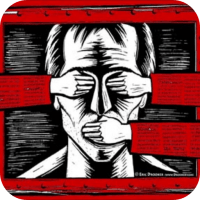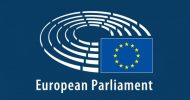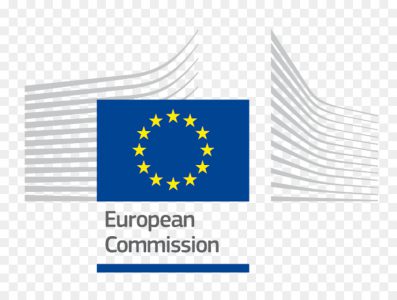Last Updated 06/11/2025 published 06/11/2025 by Hans Smedema
Page Content
Urgent Petition Concerning a Systemic Breach of the EU Rule of Law by the Kingdom of the Netherlands (Ref: European Parliament Petition 1808/2025)
Letter to the Prime Minister of Belgium:
His Excellency Bart De Wever Prime Minister of the Kingdom of Belgium Rue de la Loi 16 1000 Brussels
November 5, 2025
Subject: Urgent Petition Concerning a Systemic Breach of the EU Rule of Law by the Kingdom of the Netherlands (Ref: European Parliament Petition 1808/2025)
Your Excellency,
I write to you not only as the Prime Minister of Belgium but as a key leader within the European Council and the host of the European Union’s core institutions. I respectfully request your urgent intervention in a matter that strikes at the heart of the EU’s legal order: a documented, multi-decade failure of the rule of law in the Kingdom of the Netherlands.
For fifty years, I have been the victim of alleged state-orchestrated torture, systemic obstruction of justice, and a “state capture” scenario in the Netherlands designed to provide impunity for high-level officials.[1, 1] This case involves allegations of medical torture, including forced sterilization and “secretly forced criminal electroshock,” with some of these acts having been perpetrated on the soil of another EU member state, Spain.[1, 1]
This is no longer a purely domestic grievance. The systemic nature of this obstruction has now been formally recognized at the EU level. The European Parliament’s Committee on Petitions has accepted this case for a formal investigation, registered under Petition 1808/2025.[1, 1]
This active EU investigation confirms the matter falls squarely within the Union’s competencies, as the allegations represent a persistent breach of the fundamental values enshrined in Article 2 of the Treaty on European Union (TEU).[1] The alleged actions—including the systematic denial of legal aid, the blocking of police and prosecutors, and the documented deception of the European Court of Human Rights (ECHR)—demonstrate a complete failure of the Dutch state to provide an effective remedy, a right guaranteed by Article 47 of the EU Charter of Fundamental Rights.[1, 1]
Belgium’s role as the host of the European Commission and the European Council gives it a unique and powerful voice in this crisis.[2, 3] A systemic failure of the rule of law in your immediate neighbor, one that has already involved cross-border complicity within the EU [1, 1], is a direct threat to the “Principle of Mutual Trust” upon which our shared Area of Freedom, Security, and Justice is built.[1, 1]
I therefore urgently petition your government to:
- Formally support the European Parliament’s investigation into Petition 1808/2025 [1] and lend your political weight to its findings.
- Urge the European Commission—which the Parliament will ask to investigate—to escalate its review into a full infringement procedure against the Netherlands for its systemic breach of Article 2 TEU and Article 47 of the CFR.[4, 5, 6]
- Use your position within the European Council to table the findings of this petition and initiate a “structured dialogue” under the EU’s Rule of Law Framework, the necessary precursor to potential Article 7 TEU proceedings.[7, 8, 9]
- Advocate for the application of the Rule of Law Conditionality Regulation, given the allegation that systemic corruption within the Dutch Ministry of Justice poses a direct risk to the EU’s financial interests.[10, 1]
I have attached a concise briefing note that details the legal and factual basis for this urgent request. Your intervention is critical to moving this from a 50-year pattern of impunity to a new phase of EU-level accountability.
Respectfully,
Hans Smedema
Briefing Note for the Belgian Prime Minister
Subject: The Smedema Case (EP Petition 1808/2025): A Systemic Breach of the EU Rule of Law by the Kingdom of the Netherlands
This document provides a summary of the facts and legal basis for the petition of Ing. Hans Smedema, which has been accepted for investigation by the European Parliament’s Committee on Petitions.1
1. The Core Allegation: State Capture and Torture
The Smedema case details a 50-year “state capture” scenario in the Netherlands, alleging a systemic conspiracy to protect high-level officials, notably Joris Demmink (former Secretary-General of Justice) and Jaap Duijs, from accountability.1
The core allegations include:
- Acts of Torture: Decades of alleged medical torture, including forced sterilization (1972), systematic drugging with ketamine and antipsychotics, and “secretly forced criminal electroshock torture”.1
- Cross-Border Crimes: These acts of torture were allegedly perpetrated not only in the Netherlands but also on the sovereign territory of Spain (in Catral, Benidorm, and Murla).1
2. The Violation: A “Kafkaesque Trap” of Systemic Obstruction
The primary legal injury is not just the historical crimes but the ongoing and systemic obstruction of justice by the Dutch state, which constitutes a continuous violation of international and EU law.1 This obstruction has created a “Kafkaesque trap” 1 designed to make a legal remedy impossible.
Key acts of obstruction include:
- Denial of Legal Remedy: A systematic denial of state-funded legal aid to the victim since 2000, which is framed as a direct violation of UNCAT Article 14 (Right to Redress).1
- Blocking Investigations: Credible reports of police detectives (Haye Bruinsma) and prosecutors (Ruud Rosingh) being “explicitly forbidden” or forced to relocate by the Ministry of Justice when attempting to investigate the case.1
- Destruction of Evidence: The alleged destruction of critical evidence, including a 30-page intelligence file known as the “Frankfurt Dossier”.1
- Deception of International Courts: A specific allegation that the Dutch government provided “false fraudulent information” to the European Court of Human Rights (ECHR) in 2005/2006. This deception, which concealed the state’s role in denying legal aid, led the ECHR to incorrectly dismiss the complaint for “failure to exhaust domestic remedies”—the very remedies the state had blocked.1
- Spanish State Complicity: In the Benidorm 2010 incident, local Spanish police were allegedly blocked from intervening by “higher authorities in Madrid,” reportedly at the request of the Dutch Ministry of Justice.1 This makes the case a profound cross-border EU rule of law failure.
3. The Legal Basis for EU Intervention (Article 2 TEU)
This case is not an isolated injustice; it is evidence of a systemic breakdown of the Rule of Law, a core value enshrined in Article 2 of the Treaty on European Union (TEU).1
The acceptance of European Parliament Petition 1808/2025 1 confirms the case falls within the EU’s field of activity. The Dutch state’s actions represent clear breaches of EU law:
- Article 47 CFR (Right to an Effective Remedy): The “Kafkaesque trap” described above is a direct and ongoing violation of this fundamental right.1
- Erosion of Mutual Trust: The principle of “Mutual Trust” 1 that underpins the entire EU justice system (AFSJ) is rendered meaningless if a Member State’s Ministry of Justice is alleged to be systemically corrupt and can export its obstruction to other Member States (Spain).
4. Strategic Pathways for Belgian Intervention
Belgium’s unique position as the host of the EU’s executive (Commission) and political (Council) branches provides a critical opportunity to escalate this matter.11 The active EP petition 1 provides the formal basis for this intervention.
We urge the Belgian government to leverage its position to:
- Trigger the Commission’s Infringement Procedure: The European Parliament’s investigation will likely request a preliminary investigation from the Commission. Belgium should politically press the Commission to escalate this into a full infringement procedure (Art. 258 TFEU) for a systemic breach of Article 2 TEU. This is a legal mechanism that can ultimately lead to the European Court of Justice (ECJ) and financial penalties.4
- Activate the European Council’s Rule of Law Framework: As a member of the European Council 12, the Prime Minister can formally table the findings of Petition 1808/2025 to initiate the “structured dialogue”.8 This is the EU’s “early-warning tool” and the formal precursor to the Article 7 TEU procedure, the Union’s “nuclear option” for addressing a Member State in “serious breach” of its core values.7
- Apply the Conditionality Regulation: The dossier explicitly links the alleged corruption in the Dutch Ministry of Justice to an inability to “combat fraud against the EU budget, demonstrating a direct risk to the Union’s financial interests”.1 This provides the necessary link to trigger the Rule of Law Conditionality Regulation, a powerful mechanism to suspend EU funds.10
Hans Smedema B. Sc., in forced exile since 2008 surviving in beautiful El Albir, Costa Blanca, Spain




